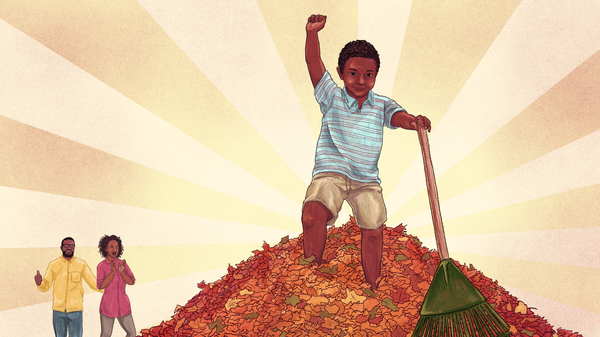Integrity is about being true to yourself, saying what you mean, doing what you know is right for you no matter what others are doing or saying. Integrity is about authenticity. But sometimes it is hard to be our authentic self, especially if we believe others are going to laugh at us or make fun of us if we are different than they are.
For kids, it may be the situation of a popular person picking on another person, and we have to decide if we are going to stick up for them like we have told ourselves we would do. It may be wearing the kind of clothes that we like and not going along with how others are dressing. Or it may be stopping ourselves from gossiping about another person when others are engaging in that activity.
It was Shakespeare who said, “To thine own self be true.” Such genuine and wise words. But how do we know what our truth is, how do we know who we are? It takes time and reflection. If we are a parent or an adult, taking the time to choose who we want to be and how we want to be in life is the first step that takes us away from just going from one reaction to another reaction. Continue reading “3 Questions About Authenticity That Influence Your Children”
4 Important Facts About Promises Kids Need to Know
As adults, we know how important it is to keep promises. Here are 4 important facts to talk to your kids about regularly and simple tasks to help them develop this aspect of integrity.
3 Facts You Need to Know About child behavior problems

A new book argues that children are less disciplined than ever. Author Katherine Reynolds Lewis identifies several culprits and says there are several things parents, teachers and caregivers can do.
(Image credit: Michelle Kondrich for NPR)
 via Why Children Aren’t Behaving, And What You Can Do About It
via Why Children Aren’t Behaving, And What You Can Do About It
Self-reliance and when to ask for help
It is a sign of self-reliance when you are trying something new. It is also a sign that your confidence is growing, you are willing to try a new skill, not knowing if you will get it or make a mistake or if it will work or fail. Your confidence in your ability to figure it out is taking you to that next level. However, what happens after you have tried and it did not work the way you hoped? What happens if you are not getting it yet?
You have three choices before you. The first choice is to keep trying on your own. That choice shows a great deal of perseverance, determination, and commitment to your task. The second choice is to give up and let go of the idea of learning. This choice may be an invitation to develop another virtue possibly your determination, or it could be diligence or even humility. What do we mean by that? It has to do with your third choice, and that is you could ask for help.
It takes humility, modesty even courage to know when it is time to ask for help from someone who has already gained this skill. So if you are stuck on a math problem in school or do not know how to start a report you need to write, whom could you ask for help? It could be your teacher, your parents or even a classmate if you know they have that skill. How do you know when to ask for help?
Certainly, if you do not understand what you are working on, getting clarification and pointers is a great way to get yourself started again on your goal. If you are doing something that could be unsafe or you could get hurt, asking for help is a wise choice. Let’s say you want to go skiing, but you have never skied before. You could get hurt if you went down the wrong side of the mountain without the skill needed. Taking lessons and getting help would be wise.
However, if you are asking for help for something that you just do not feel like doing that is not practicing fairness to those around you. So if it is your contribution to the family to take the trash out and you just do not feel like it, you may want to think about the fairness to others in your family. You may consider whose responsibility it is and see it as an invitation to practice your responsibility, dependability, and trustworthiness.
All of us at some time have not felt like doing something that was our responsibility. However, if we are growing our self-reliance, we step up and take care of what we are capable of doing. At the same time if you need some help, if you really cannot do what is asked of you, practice humility and courage and ask for the help you need. Then next time you may be able to demonstrate your self-reliance by doing the task by yourself.
How to make self-reliant kids
Self-reliance is a life skill that in the beginning depends on having cheerleaders on our side encouraging us to keep moving forward, take the next step until we gain the confidence to do so on our own. This fact is true for most of us no matter our age. Especially with children though we must balance our praise and encouragement with some needed help to get them over an obstacle that may be too much at this moment in time.
The tricky part that has been the most difficult for parents since the 1980’s is the part of giving too much. I am becoming more convinced with each family that I work with and talk to that it is the giving of too much that has created the reason that we need to focus so much on self-reliance, resilience, and grit in our young people today.
There are so many examples of young people that did not grow up in a situation that their parents had very much to give except for their unconditional love and building a relationship with their kids. In those kids many times we see grit and determination to do better for themselves and to make things happen. Unfortunately, once they have gained a level of success, they may not realize it was the hardships they went through and the work they did that created the person they are today. So they make the mistake of wanting to give their kids everything they did not have and, the virtue of determination, the life skill of self-reliance is not strengthened in their children.
In other families, I have seen the children handed everything they need and want and later in life, grow up not knowing how to pull themselves up from failure and make something happen. They continue to look for others to do things for them. Now just to be clear this is not a blanket statement about every kid and every family. However, not encouraging our kids to work for their goals is not going to help them be self-reliant.
Building self-reliance is key to building a stable, resilient, gritty adult. Balancing our helpfulness and generosity with our kids with honoring their dignity and strength is what creates healthy successful and happy adults. Doing too much for a child does not allow them to strengthen this life skill or their resilience that they need in the adult world.
What is self-reliance and how can our kids learn it
Self-reliance is the goal of parents for their children so that when they get older and out on their own they can function and accomplish the day to day tasks of life. There are several virtues needed to attain this life skill of self-reliance. Our child will be building their confidence, independence, dependability, patience, flexibility, and trust – self-trust.
When our child is very young, just a baby, they depend on us for everything. We feed them, dress them, and get them from one place to another. Later they learn to crawl and walk, start using eating utensils and dressing while becoming self-reliant. They start making choices about what they will wear, who they want to be friends with and make judgments about what is right and wrong, fair or unfair. While we are excited to see them grow up it can be difficult too. As they take on these new areas of life, they are building their self-reliance.
From the parents perspective helping our children grow their self-reliance requires us also to be confident, patient, flexible and trusting. The number one rule in building self-reliance is not to do for a child what they can do for themselves. What we know as an adult is that every new thing we try may not come quickly at first. With practice though, a few mess ups and coaching we can improve.
When helping our child develop their self-reliance, we will give them the same opportunities without judgment to try new things, practice, mess up while we coach them through the process. Setting our expectations at a developmentally appropriate scale and allowing mistakes and imperfections as learning experiences will build their confidence. Even while the child is learning to make judgment calls, we can coach them through the process of decision making and allow them to deal with the consequences that come up so they learn to make choices that will be the best for them.
Building self-reliance can be a bit messy while in the middle of the process. However, the result of seeing our child making choices that are best for them, taking care of household chores on their own, getting up in the morning by themselves and other things without prompting from us the parents is worth celebrating. Self-reliance is about depending on ourselves and trusting our choices. Parenting is about educating, guiding, correcting in a way, so our children grow up with self-reliance.
